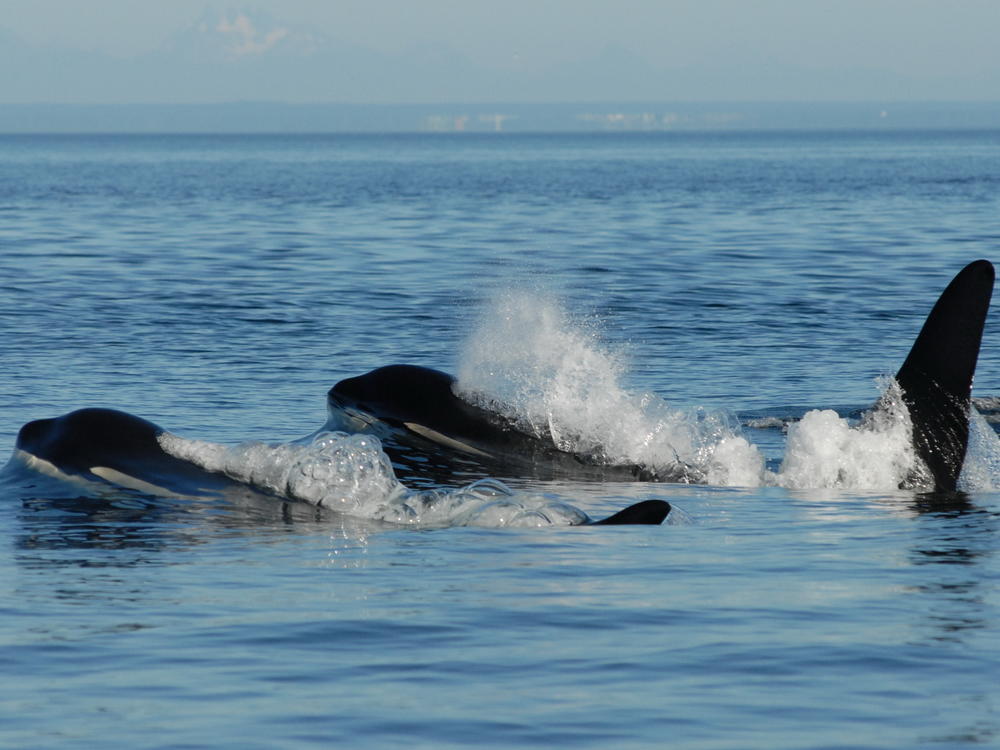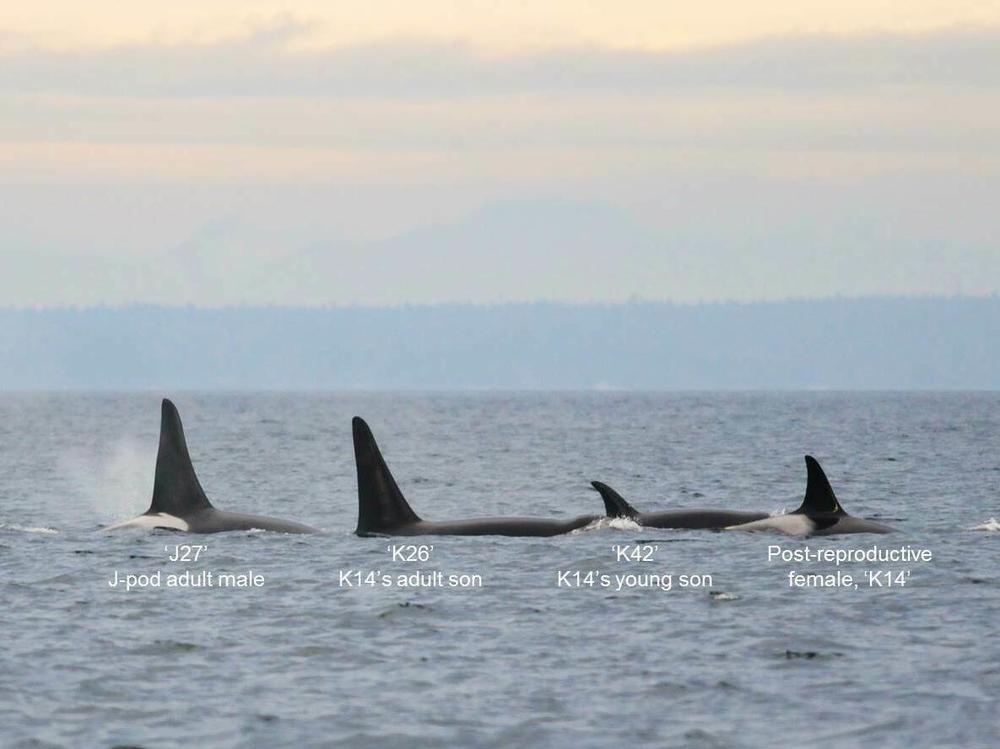Section Branding
Header Content
Most animals don't go through menopause. So why do these whales?
Primary Content
Across the animal kingdom, menopause is something of an evolutionary blip. We humans are one of the few animals to experience it.
Sam Ellis, an animal behavior researcher at the University of Exeter, says that this fact isn't so surprising.
"The best way to propagate your genes is to get as many offspring as possible into the next generation," says Ellis. "The best way to do that is almost always to reproduce your whole life."
So perhaps it's more surprising that a handful of animals ever evolved this trait.
Ellis and his team at the University of Exeter have recently published a study in the journal Nature that sheds light on how this trait may have evolved in toothed whales. There are five species of toothed whales that undergo menopause — short-finned pilot whales, false killer whales, killer whales, narwhals and belugas — making it the type of animal that is known to have evolved menopause most frequently.
A winning intergenerational survival strategy
The rare nature of menopause across animals doesn't mean, however, that it's a bad strategy.
Ellis and his team, in partnership with the Center for Whale Research, looked at the welfare and longevity of menopausal toothed whales versus non-menopausal toothed whales. They found that not only do the menopausal female whales live, on average, 40 years longer than females of other species — these females also live longer than the males of their own species.
Researchers think that reason for this could be tied to reproductive competition.
Generally, if a mother and her daughter are both reproducing and living in the same group at the same time, they're competing for the same resources. "There's a limited amount of food around and you've got to choose who you give it to," says Ellis. "And so there's competition."
According to the grandmother hypothesis, menopause could help avoid that competition. Older females can better protect their offspring — and better ensure their genes are passed on — by instead helping to protect and provide for their children and grandchildren.
Why toothed-whales?
For menopause to evolve, very specific circumstances are needed.
First, females must spend their lives in close contact with both their immediate offspring and their grand-offspring in order to create this reproductive competition. In menopausal toothed whales, not only do the lifespans of females overlap with their direct kin and grand-kin, they can continue to interact with these generations throughout their lives — as observed in killer whales, for example.
Second, the females must have an opportunity to help their families after they can no longer reproduce. There are various ways that older female toothed whales can provide intergenerational help. They might share food with relatives, share their knowledge of the ecosystem and lurking dangers, or even help babysit their grand-calves.
All of this behavior has been documented in toothed whales. While much of whales' social structures are still unknown, beluga whales and narwhals are usually called "matrifocal," meaning the oldest female takes charge.
Essentially, menopause helps create a social role of the whale grandmother. She sticks close to her descendants, helps them in times of need and shares her wisdom.
Ellis says that while scientists can't say for sure, humans likely evolved menopause for similar reasons. "It looks like there's only one pathway for the evolution of menopause."
He and his team plan to dive deeper into intergenerational help – instances they see in these whales and other menopausal species.
But for now, this research reveals some of the similarities we humans share with creatures that at first glance seem quite different from us. Not only are both animals menopausal, we're also long-lived — with grandmothers that play a large role in our social structures.
Curious about other animal behavior mysteries? Email us at shortwave@npr.org.
Listen to Short Wave on Spotify, Apple Podcasts and Google Podcasts.
Listen to every episode of Short Wave sponsor-free and support our work at NPR by signing up for Short Wave+ at plus.npr.org/shortwave.
Today's episode was produced by Rebecca Ramirez and Gus Contreras. It was edited by Rebecca, Viet Le and Christopher Intagliata. Rebecca also fact-checked it, alongside Rachel Carlson. Kwesi Lee and Ko Takasugi-Czernowin were the audio engineers.


